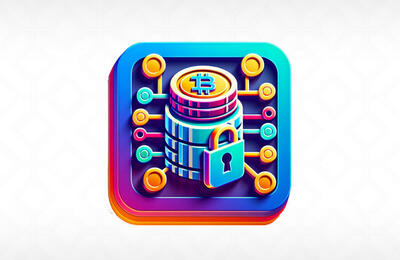
Since its inception more than one decade earlier, Bitcoin has drawn both capitalist's and charlatans' interest, with the latter outnumbering the former. The world of cryptocurrencies is marked by low liquidity and a scarcity of institutional buyers. However, it is infested with terrorists and con artists. Scammers also capitalized on the waxing and waning of bitcoin's market trends. When the value of Bitcoin grew, so did the amount and volume of such fraud, and much more criminals started to use the currency for purchases. Their figures plunged as rates soared, the number of assets on its network shrank, that it became an unappealing investment choice.
Frauds mostly on Bitcoin systems, have grown in lockstep with the growth of the network's technology. Bitcoin's initial blockchain network was primitive, and it often broke because as network's volume of transactions increased. Illicit operations in Bitcoin's environment now echoed its sustained release dosage, with the blockchain mainly being utilized for dark network transactions, including such narcotics sales. Here's a list of the most crucial Bitcoin scandals, some of which have surfaced throughout recent years.
Hacks On Exchanges And Wallets:
Initially, the critical reservoirs of cryptocurrency assets for hacking is funds are usually. Hackers are now concentrating their resources on other fields, including online coin wallets. A few of the largest such attacks happened in June 2020, where hackers infiltrated Ledger's mail and advertising servers, a Bulgaria cryptocurrency wallet firm, and stole half a million consumer email addresses. They also took 9,500 consumers' confidential information and placed 242,000 of their user accounts on a page devoted to compromised databases. Poloniex, a digital currency, encountered a similar hack towards the start of December and had to give an update to its users, telling them to restore their codes.
Scams On Facebook And Twitter:
In today's culture, social media has grown into a potent and influential force. Its growth also correlated with Bitcoin's expanding popularity in the mainstream. Therefore, it's not shocking that attackers are targeting Bitcoin holders via social networking sites. They've taken to building bogus social networking profiles to receive Bitcoin from fans, or they've infiltrated famous Twitter mobile money. The most well-known case of this happened in July 2020, when Twitter handles related to prominent persons and businesses were compromised. Accounts belonged to software founders Elon Musk, Bill Gates, businessman Warren Buffett, boxer Floyd Mayweather Jr., and firms including Apple and Uber were among those hacked.
Hackers obtained entry to Twitter's admin portal and used these accounts to send out tweets demanding that their supporters send money to a particular blockchain address. Users' funds will be tripled and returned as a generous act, according to the organization. According to sources, three hundred twenty transfers were confirmed to have taken place within moments of the messages being sent out.
Twitter was not the only social media site where Bitcoin scams are popular. YouTube, the video service, has a critical issue. Apple founder Steve Wozniak complained to Google during July 2020, claiming that his Bitcoin communications were used in bitcoin promotion fraud images. Users who agreed to deliver their cryptocurrencies to a ledger address listed in the videos will have their cryptocurrency sums multiplied. Seventeen more citizens have lodged a case against YouTube since getting conned by crypto promotion images.
Scams Concerning Social Engineering:
Hackers employ psychological coercion and fraud to obtain vital knowledge related to user identities in social manipulation schemes. Phishing is a common tactic used during social manipulation schemes. In phishing, hackers give victims an email containing false links to something like websites intended to gather confidential details from them, such as banking information and personal info.
Phishing scams are popular in the cryptocurrency business, and they target details regarding online wallets. Scammers are mainly interested in cryptocurrency wallet private keys, including keys that enable people to access funds deposited throughout the wallet. Their mode of activity is close to that of conventional con artists. Wallet owners get an email that guides them to a malicious website that asks them to enter their private critical details. If the criminals have this knowledge, they will be able to acquire Bitcoin from the accounts. Hackers often use Bitcoin ransom emails as just another powerful public engineering strategy. In such communications, hackers pretend to have a list of the recipient's visits to porn websites and attempt to disclose them until the user reveals their encryption information.















